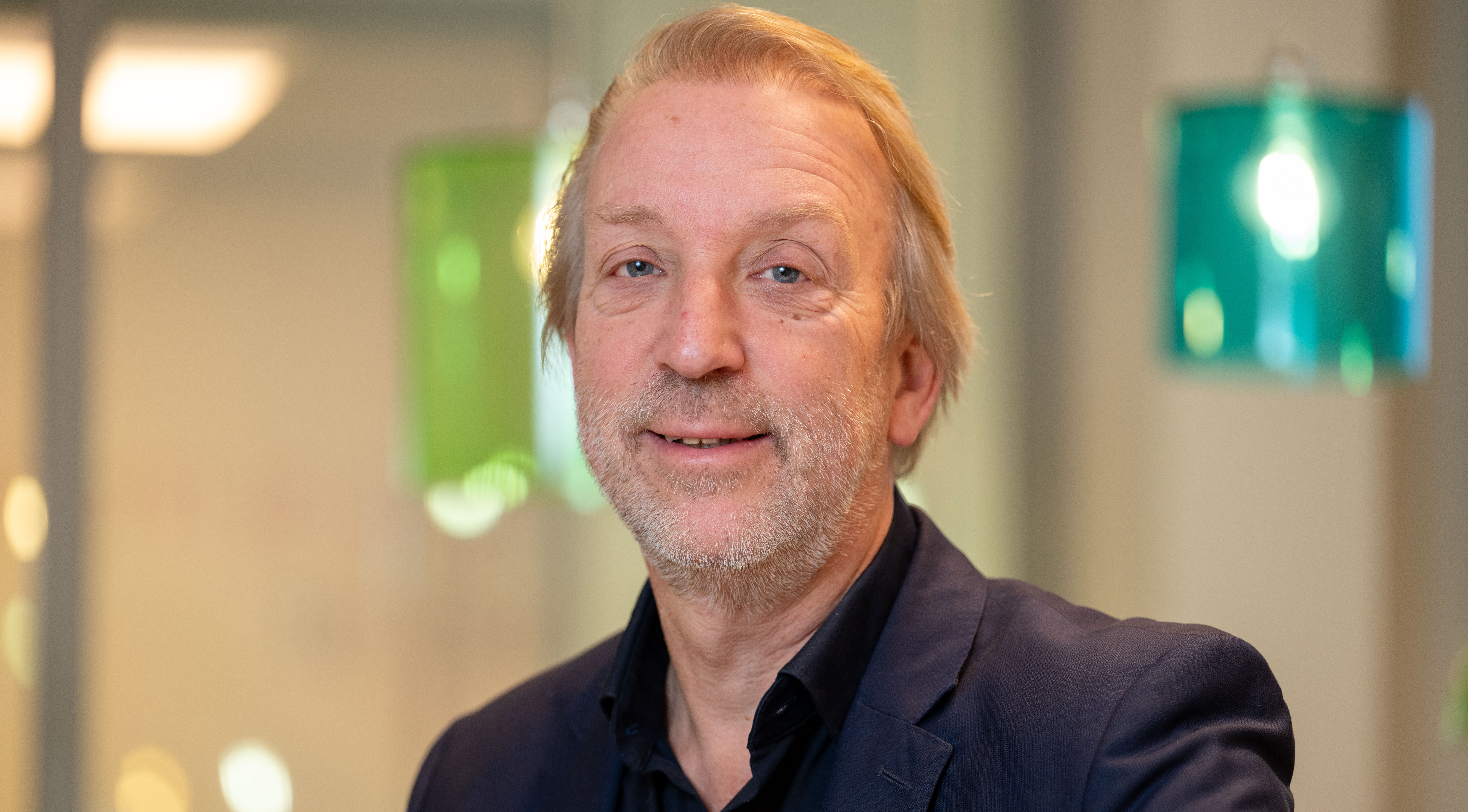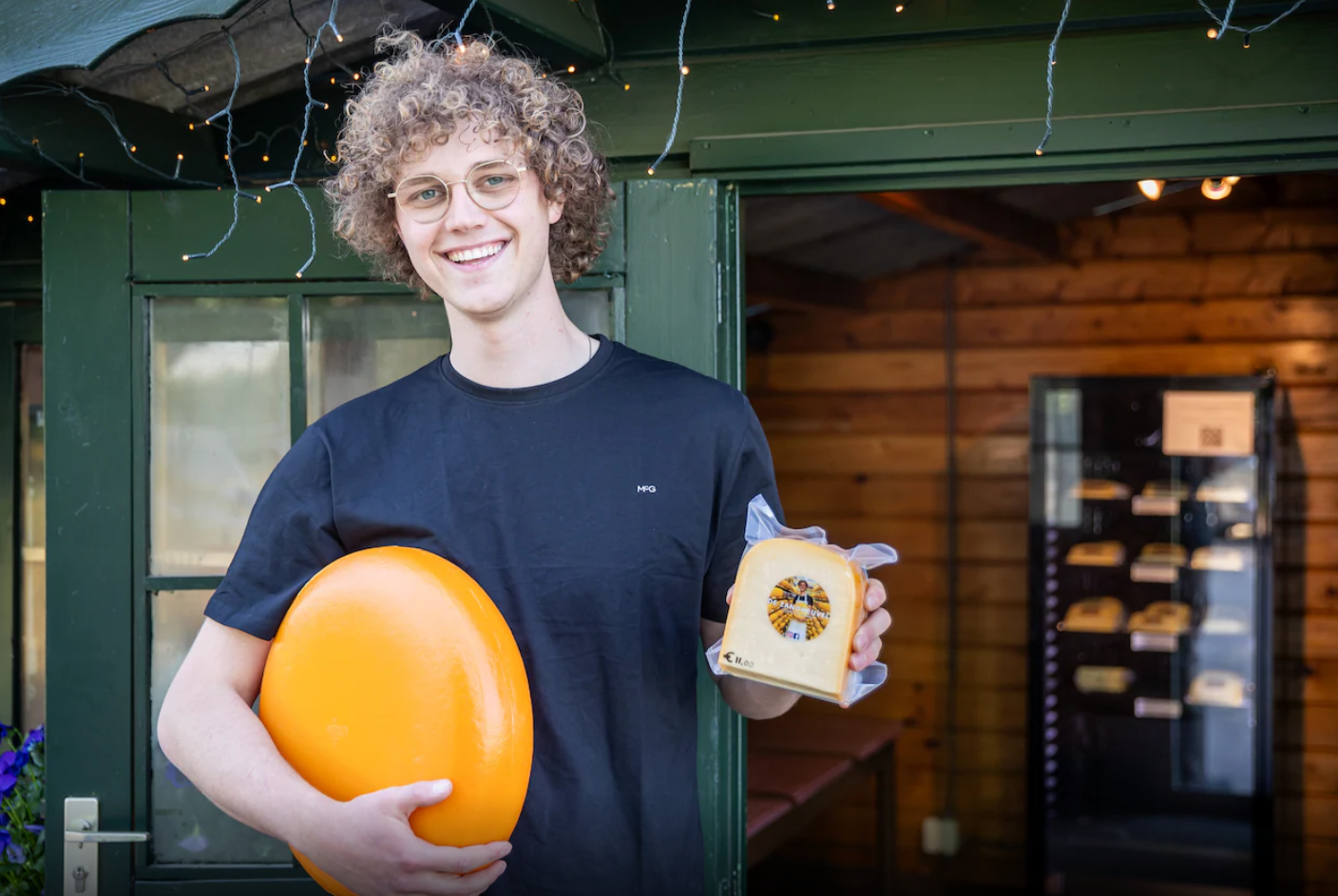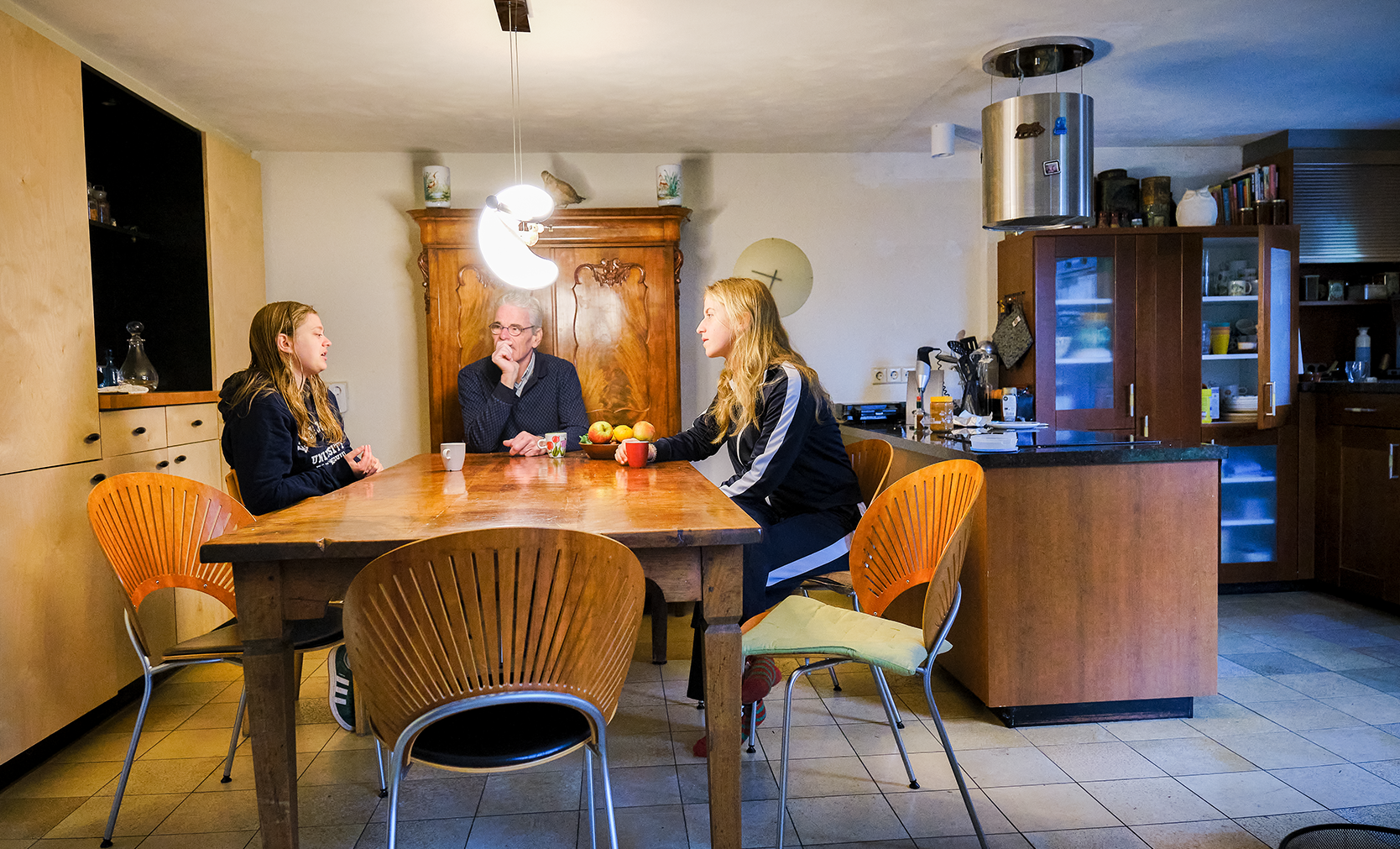In nine years, he has seen a lot of change in the world and in WUR, and his optimism is now tinged with more realism. Rector magnificus Arthur Mol is stepping down from the Executive Board.
There is not a cloud in the sky and a bitter wind is blowing. During a walk around the campus, Arthur Mol looks back on his nine years on the Executive Board at WUR, at the helm of research and education. He has seen a transformation in the world, both on and beyond the campus. And Covid had quite a lot to do with it. ‘The virus changed a lot of things. Digitalization in education, for instance. That was one of the spearhead ambitions when I started. We thought the lockdowns would give that a boost, but both students and staff expressed dissatisfaction with purely digital distance learning. It obviously has its limitations, so classes on campus are and will remain the basis of our education. In the ongoing discussions about the strategic plan, we still see digitalization as important, but we don’t want any educational programmes that are entirely digital. Realizing that was a moment of recalibration, a turning point.’
There is something else that Mol thinks has changed: Wageningen has lost its monopolist position. Other universities have taken up Wageningen themes: ‘Sustainability, food, climate: these are the themes of the future. That wasn’t the case yet nine years ago. There weren’t any ambitious European plans like the Green Deal or Farm to Fork. As a result of these developments, other universities have started addressing these themes. Nothing worrying about that, to me. It’s just that you’ve got to keep on proving that you’re the best, and we’re still managing that. But I do think it’s suboptimal when all universities work on the same things: it’s better to have specialized institutions. You mustn’t water down knowledge and infrastructure. But nor must we turn into a technical uni like Eindhoven. This discussion is now going on in the ministry, which also favours specialist institutions. Although the steering in that direction could be improved, I think.’
Rules and regulations
His nine years as rector have been characterized by discussions about growth, financial concerns, internationalization, diversity, new research centres, work pressure and all the rules and regulations. Reducing the latter was one of his first goals when he became rector in March 2015. That should be doable, he thought. He was wrong. Now he says he was too naïve about it. ‘It was easier said than done. I still think the administrative workload needs to be reduced, but the majority of the checklists and box-ticking comes from the outside world: we’re dealing with an ‘audit society’ in the Netherlands.
We don’t make things easy for our junior academics: it’s hard work and the quality criteria are strict
The ministry, our clients, the education sector: rules and auditing requirements come at you from all directions, it’s endless. Take what’s happening now with the tightening of the rules on professors reporting their side earnings. It’s logical, but it only adds to the feeling that we need fewer burdensome rules.’ Can nothing be done about all those rules? ‘We should at least get smarter about the rules that we are in control of ourselves. Things like claiming travel expenses – we’ve made that easier: a small victory. But our efforts to simplify the Performance and Development (R&O) evaluation process weren’t always successful, and we need to take that further. So I was naïve about that. Reducing the pressure from rules and regulations is not as easy as I thought.’
Mol has done his bit towards an open management culture. But realistically, there are limits to that too. ‘Mainly because you can’t be open all the time. When there are several parties around the table – perhaps the municipality and the provincial council for a discussion about the ring road – you can’t always put everything on the table from the start. But I do think I’ve introduced an open style and have always been approachable: for our chair groups, research teams, staff and students. Anything could be talked about.
I’ve paid a lot of attention to finances; not the first thing on my mind when I became rector
When we had to make a decision, we first entered into discussion with all the stakeholders. Only after that did the board take a decision. A nice example was the new timetable a couple of years ago – we didn’t push that through. Or the recent scrapping of multiple resits during an academic year. That was a typically Wageningen phenomenon. Nice for students, but it caused a lot of stress for teachers. Students, staff and the Executive Board worked it out together, and now there is just one resit per course.’
Change course gradually
Mol emphasizes that he always involves everyone in decisions. ‘I don’t want to put anyone on the spot.’ That’s because of an unpleasant surprise he once experienced himself in the late 1990s in Wageningen. ‘I was an Environmental Policy researcher at WUR and during a cutbacks operation, the board announced to a roomful of people which departments were going to be closed down. That generated a lot of negativity, not just in those departments but throughout the organization. I resolved to myself: when you’re steering, take it slowly and get people on board with the changes. And that’s what I’ve done. Change course gradually.’
He took the same approach to the tenure track system, which has been the subject of much debate during his term of office. To its critics, the career path for academic talent relied too much on quantitative assessment criteria such as high publication scores. Mol had to look for a better system for recognizing and rewarding the qualities of academics. ‘We don’t make things easy for our junior academics: it’s hard work and the quality criteria are strict. I sometimes hear stories about what is said outside the institution: ‘Don’t start out at Wageningen, it takes ages there before you’re a professor.’ Then again, we are a top global player, so I think it’s okay to set the bar high. But we have made the path more flexible and diverse in recent years. In Wageningen we’re no longer only interested in the number of publications and research grants you score, but also in advances made in education, research and societal impact.’
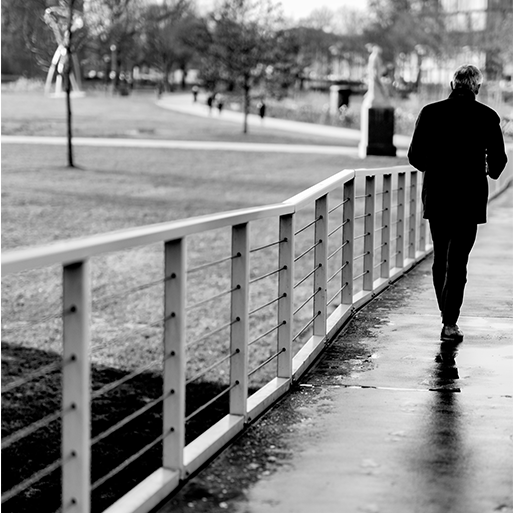
Finances
On a bench outside Aurora, the conversation turns to a ‘tricky dossier’. A dossier that he did get the hang of, he thinks: the finances. ‘In my early days, student numbers rose fast and the finances lagged behind. I had to start focussing on the transition from the agriculture ministry to the education ministry, sector plans, the funding that came out of the Van Rijn commission, and starter and stimulus grants. Some of our research funding went to education to keep it afloat. It was tight, there was a lot of pressure on the financing, and that can only be solved if you get more money. But our institution is embedded in a system in which the pie has to be shared with other universities. If one university gets more, it’s at the expense of another one. That’s why we went to the ministry together to lobby for a bigger pie, and we succeeded in that. We also clubbed together with the three technical universities to form 4TU, and attracted more financing that way. The university’s transition to the ministry of Education, Culture and Science also brought an improvement to the financial situation. When I started, the budget for the university was just over 300 million euros, now it’s half a billion. For Research too, by dint of lots of lobbying we’ve got additional funding for what is called Knowledge Base Research and for facilities, although there’s still room for improvement. All in all, I paid a lot of attention to finances. With hindsight, that’s logical, but it wasn’t the first thing on my mind when I went from being a professor to being the rector.’
Students
And students? Has Mol seen changes in nine years in office? ‘They’ve become gloomier. They care a lot about the world, which isn’t doing very well. That has an impact: some find it hard to get motivated, and wonder whether there’s any point in studying. I have also seen more radicalization, like the activist groups that speak out in the fossil fuel debate. On the other hand, students are increasingly hard on themselves. They are ambitious and find it difficult to keep things in perspective. For example, during the introduction days I used to say, “Go for it, do as much as you can, lap it all up and try to excel.” I don’t say that anymore. “Do as much as you can,” I say now. “Enjoy your time at university and be aware of what you can and can’t do, and what you want and don’t want”.’
Arthur Mol (64) is not ready to leave Wageningen yet. He is going back to being a fulltime personal professor. ‘And I’m starting with a temporary role as acting chairholder for two merged groups, one of them that of my successor Caroline Kroeze.’ Kroeze will take over from Mol during the Dies Natalis – the university’s Founders Day – on 8 March.

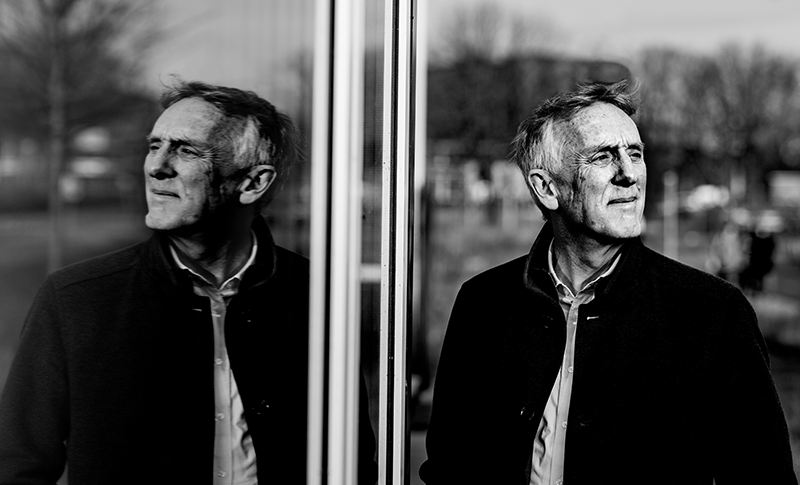 I do think I’ve introduced an open style and have always been approachable: for our chair groups, research teams, staff and students. Anything could be talked about.’ Photo Duncan de Fey
I do think I’ve introduced an open style and have always been approachable: for our chair groups, research teams, staff and students. Anything could be talked about.’ Photo Duncan de Fey 